As Facebook becomes the go-to for political advertising, goverments are trying to use and abuse its powers. Volodymyr Zelensky’s social media team are no exception. Their ‘work’ got noticed by Facebook after ‘Bukvy’ investigation exposed how a network of pro-government fake accounts and public groups ‘manipulated public debate’ and targeted Zelensky’s political rivals.
The backroom boys often refered to as Ze-team slowed down a bit and shifted the focus from use of aggressive and visible bots to a safer game engaging other social networks, small media outlets and actual bloggers.
The pages that ‘smeared’ political opponents and lauded the president’s circle are gone. However, hundreds of accounts created for the election campaign and supporting Zelensky’s image are still there.
‘Bukvy’ has looked into the landscape of pro-Zelensky camp on Facebook.
What happened to digital camgaign pages of the president and Ze-team after the elections
Most of the pages created ahead of Zelensky’s presidential campaign have long been inactive while a few others merged with Ze-team public groups or were turned into news aggregators.
Interestingly, one of the most active pages of Zelensky’s support was linked to the official account of the President’s office.

Reposts from the President’s office account keep popping up on his ‘election page’ to improve the engagement metrics.

The Ze-team page, created ahead of the presidential elections, was recently re-booted as ‘Media about Ukraine’, running the same pro-Zelensky content.

A close look at the news pages earlier used for Zelensky campaign shows the Ukrainian president digital team is now keeping away from use of political ads on Facebook.
Before Facebook pulled the plug on exposed pro-Zelensky network of fake accounts and compomised pages, they had spent $ 210 thousand on their political ads and messaging.
Political advertising on Facebook. What else besides the official pages?
Political advertisements are regularly posted on official ‘Servant of the People’ account. Running such ads for a week in September cost them $ 1,131.

The paid posts promote different stuff getting dozens of likes and several shares, at best.

Political ads of Zelensky and his team still appear on pages of lesser known media meaning they scaled down their Facebook budget.



‘All the president’s men’ and their work
Zelensky has build solid ‘fanbase’ on social networks, and, no mistake, there must be real people out there who appear to be investing much time and effort to back up the ‘Servant of the People’ leader in social media spats over his policies.
Soon after Zelensky became the president, they created Facebook pages to support him, and even pay for ads promoting his policies.
The man on the far left of this photo is Dmytro Ivanov. He helped Zelensky build social media presence and still runs most of his political advertising campaigns.
The photo features Mykhailo Fedorov, a young IT entrepreneur, who joined the team of then presidential candidate Zelensky to lead his digital campaign. When Zelensky took the office, Fedorov was made a deputy PM and minister of digital transformation.
‘Nashi Groshi’ ran a report covering his accomplishments on the digital front. The money that span Zelensky election campaign on social media reportedly came to Fedorov from Serhiy Shefir , producer of ‘95 kvartal’, long acting as Zelensky’s top advisor. Nashi Groshi found it was unaccounted outside money, about $350 thousands, that got Zelensky loads of political ads across social media platforms.
According to ‘Chesno’ watchdog group, ‘Servant of the People’ secret spending on Facebook political ads alone amounted to UAH 1 million.
As lots of others Zelensky’s loyal followers, Dmytro Ivanov is actively involved with several pro-goverment public groups on Facebook and shares a lot of content there.
Rules of such Groups are very simple – they ask to post verified information and not to ‘throw mud’ on opponents:

Though the latter requirment is usually overlooked an d:

The pages administered by Dmytro have no original content and often share almost identicsl posts for several times taking on Zelensky’s political opponents.



Ze-team’s ‘news-pushing’ on Facebook
Investigation by ‘Bukvy’ traced links to active interconnected groups and pages that form an ecosystem used to promote Zelensky’s policies
Here is a screenshot listing typical subscriptions of an average Zelensky fan.

Everything revolves around the same topics and messages:


The Ze-team also uses pages earlier created for promotion of Mikhail Saakashvili:


How ‘all the president’s men’ seed and spread information
It usually starts with a post from a Zelensky supporter.

Such posts are usually promptly shared and re-shared in the affiliated groups and on pages of other Zelensky’s backers. Use of reposts and citations drives up engagement – a single person can make up to ten reposts to different thematic groups:

For wider outreach and bigger effect they use crossposting:

Use of shares, automated reshares and replies helps Zelensky backers seed his political messaging in countless feeds building significant infuence – such posts get recommendations due to algorithms of the social network.
Pro-Zelensky groups utilize similar posts, either praising the Ukrainian president or criticizing his rivals, and then have them reshared at across numerous Facebook groups:


Some of Zelensky supporters have gained an cult status and collected a large number of followers.
There is Natalya Yashyn who calls herself a ‘Ukrainian woman from Kharkiv, who lives in Israel, is very much worried about Ukraine’ . 
Natalia is a loyal mouthpiece for Zelensky’s political agenda and her regular posts are filled with commentory on the latest political news. Her common topics for discussion are Zelensky goverment, Putin, and Wagner mercinaries secret operation.

Such online influencers are often cited on ‘news site ’ pages that cover Ukrainian politics.
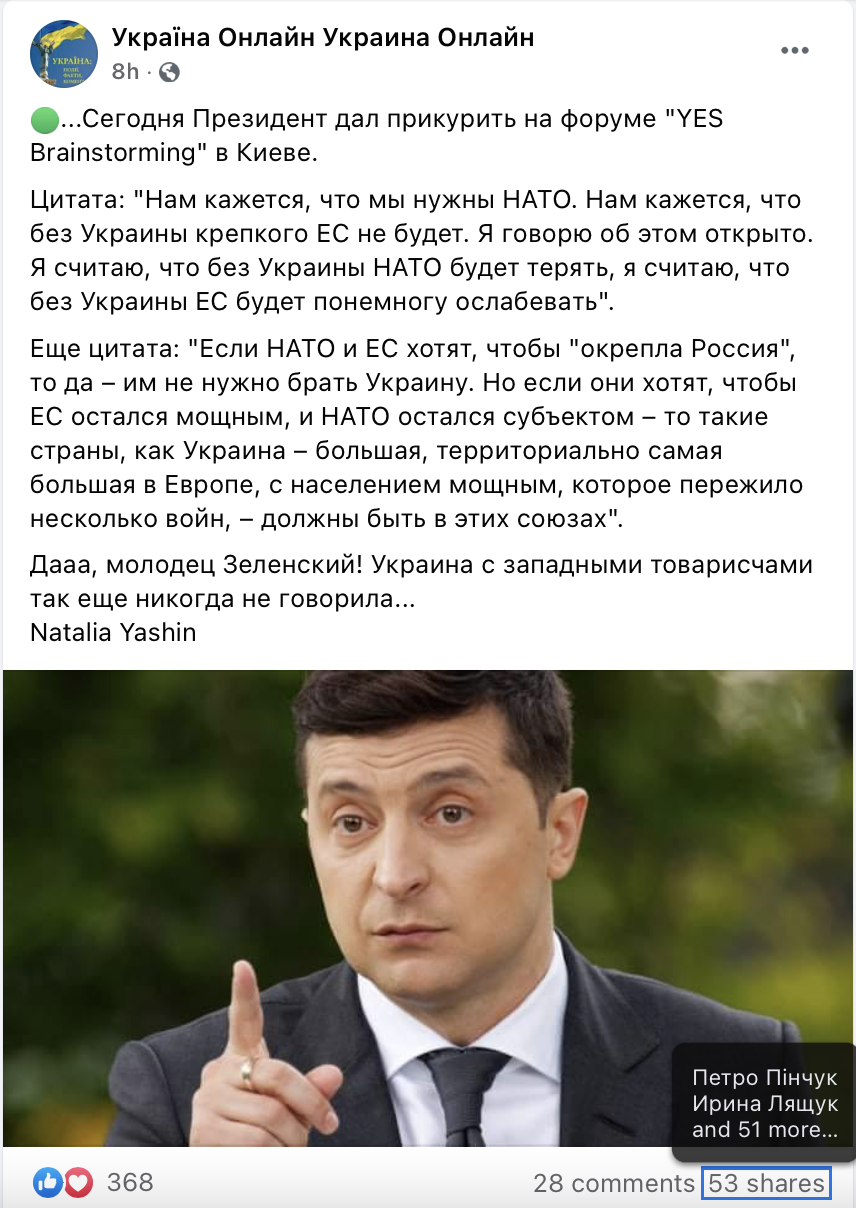
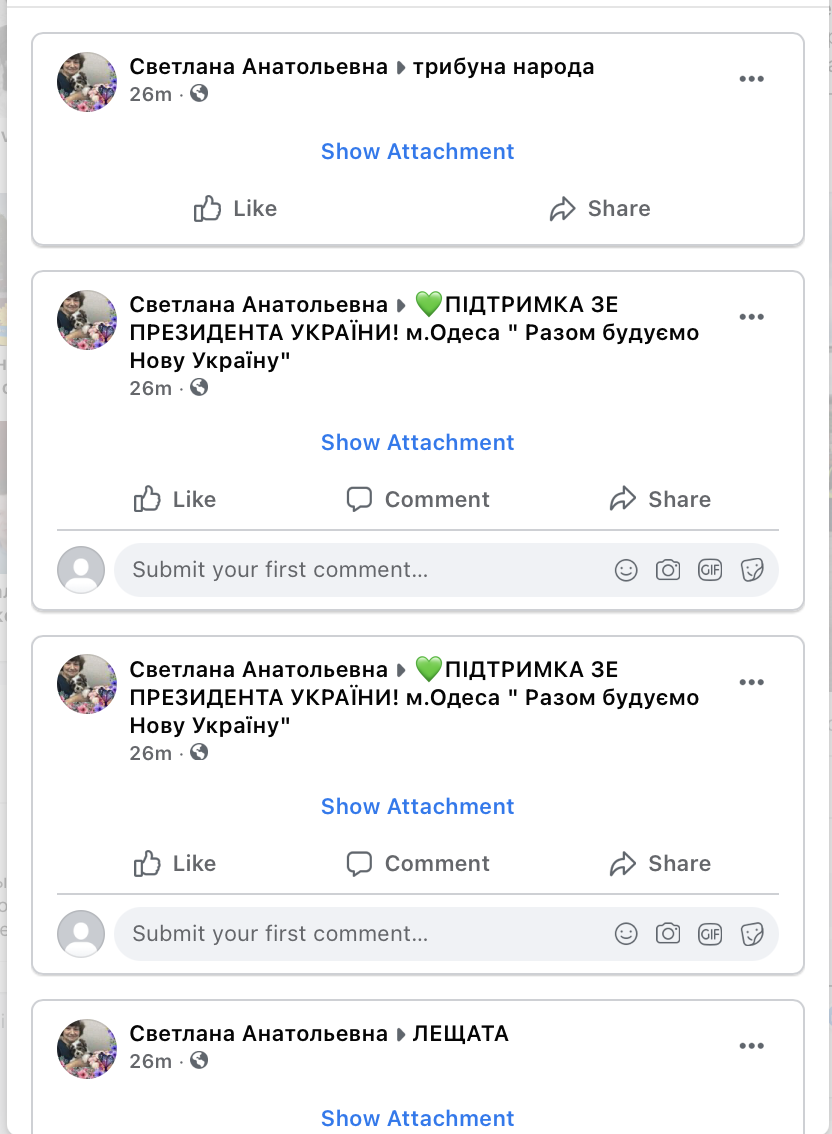
With over 22 thousand followers, Natalya Yashyn enjoys a powerful platform to form online discussion and affect public perception. 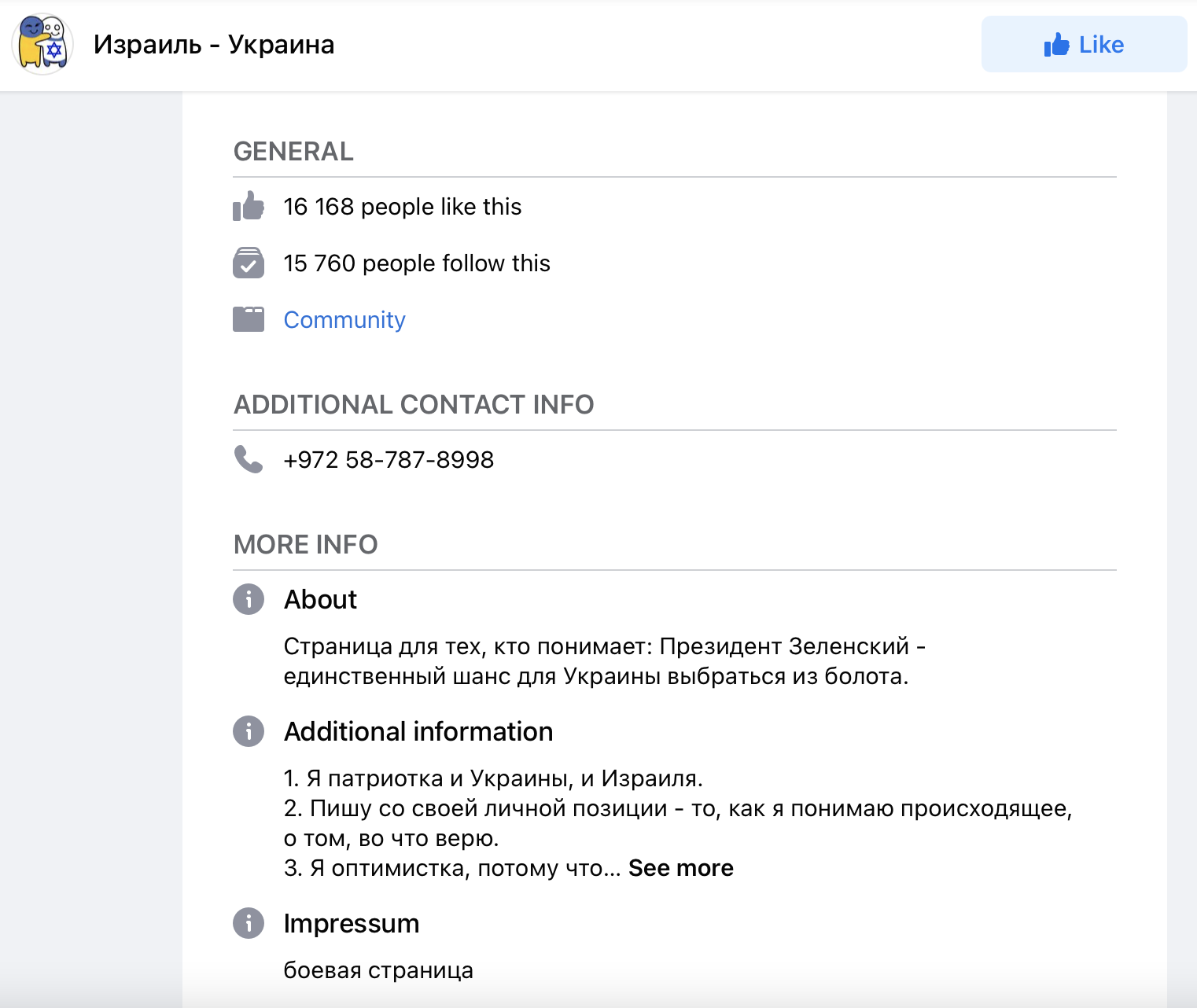
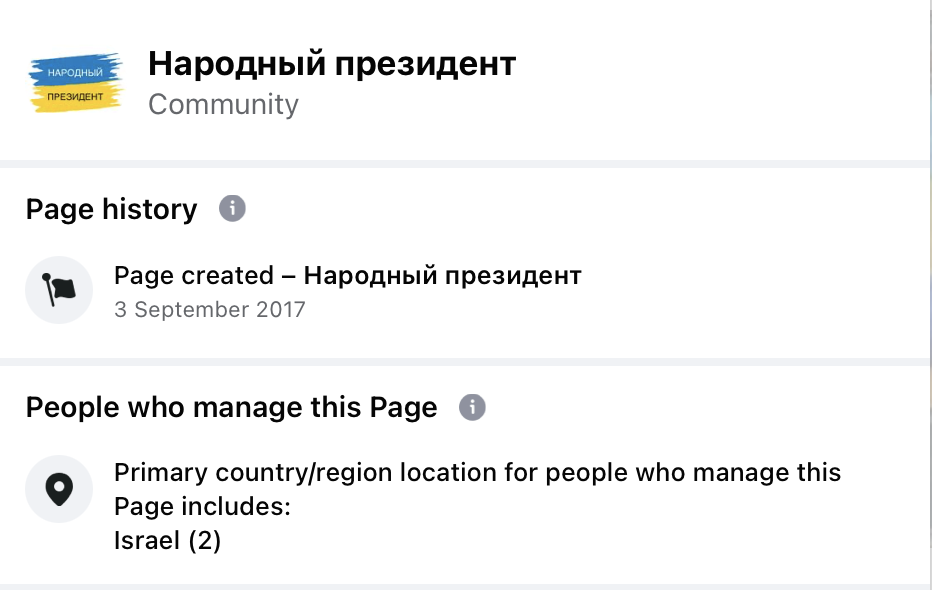
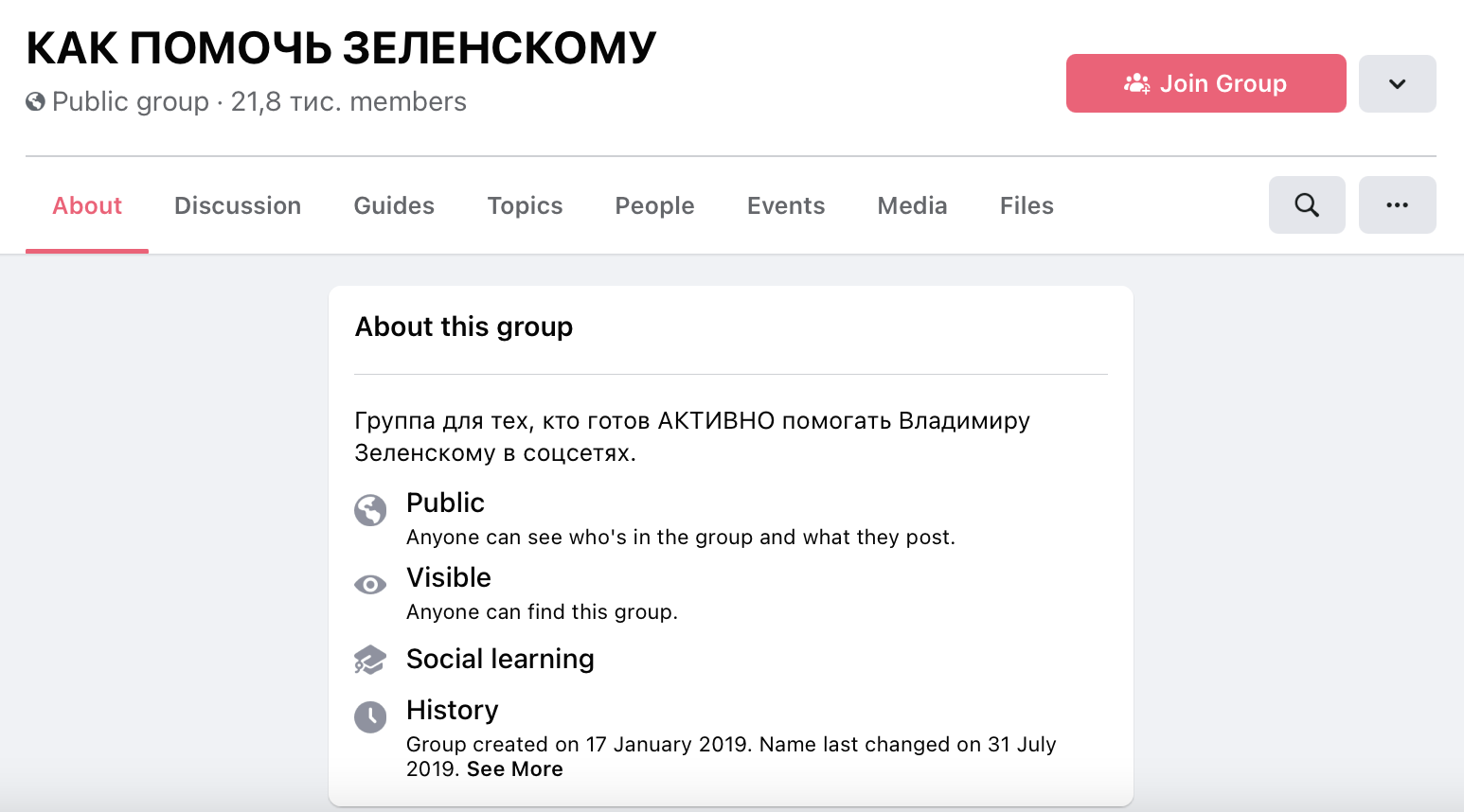
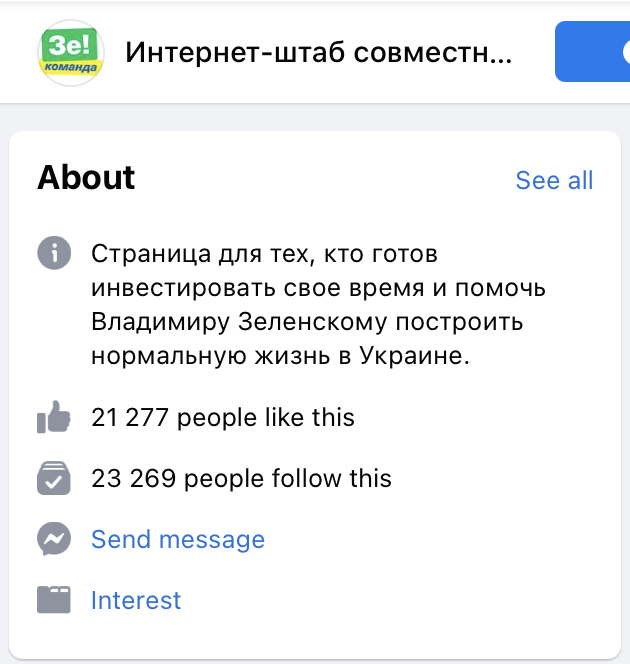
Yashyn’s positive messages about Zelensky are recruiting him supporters and fostering his fan base.
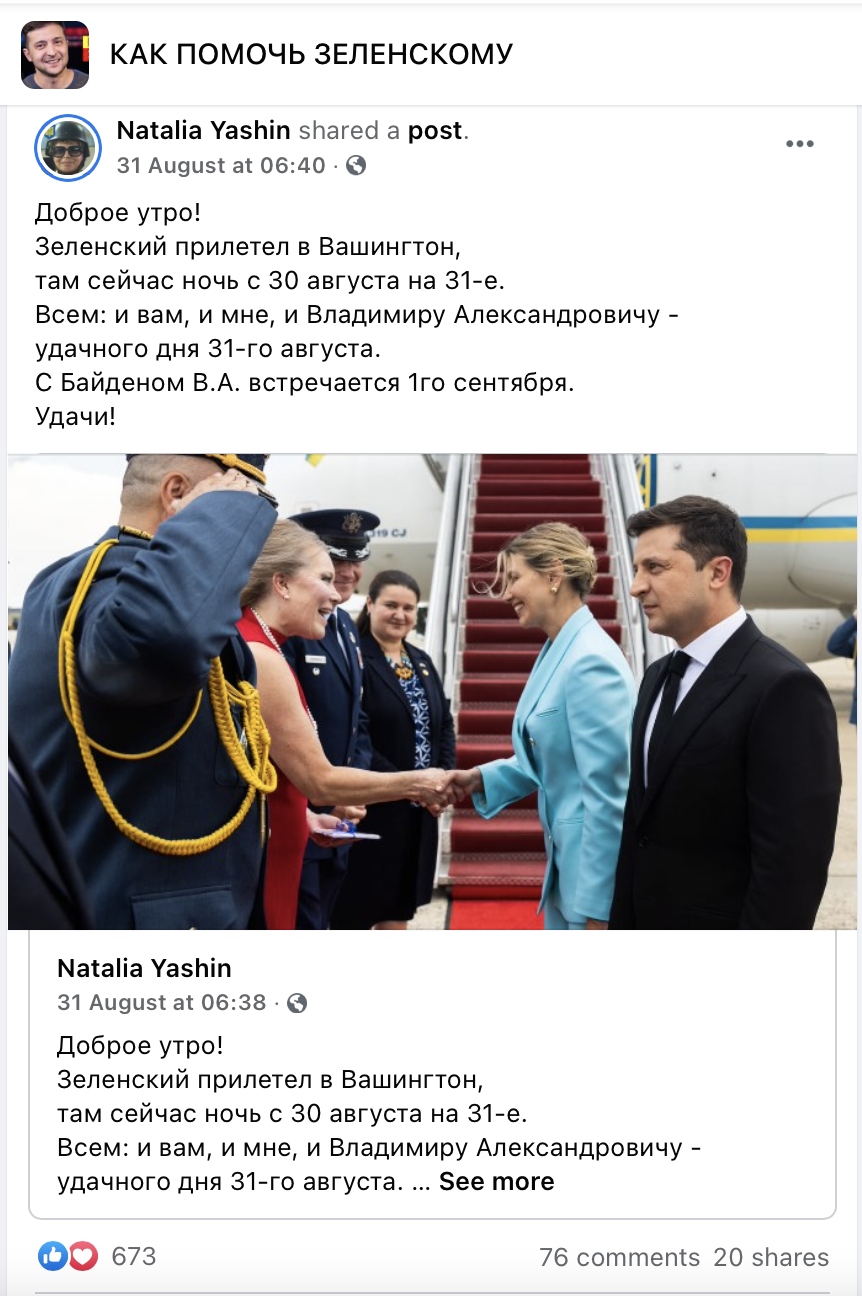
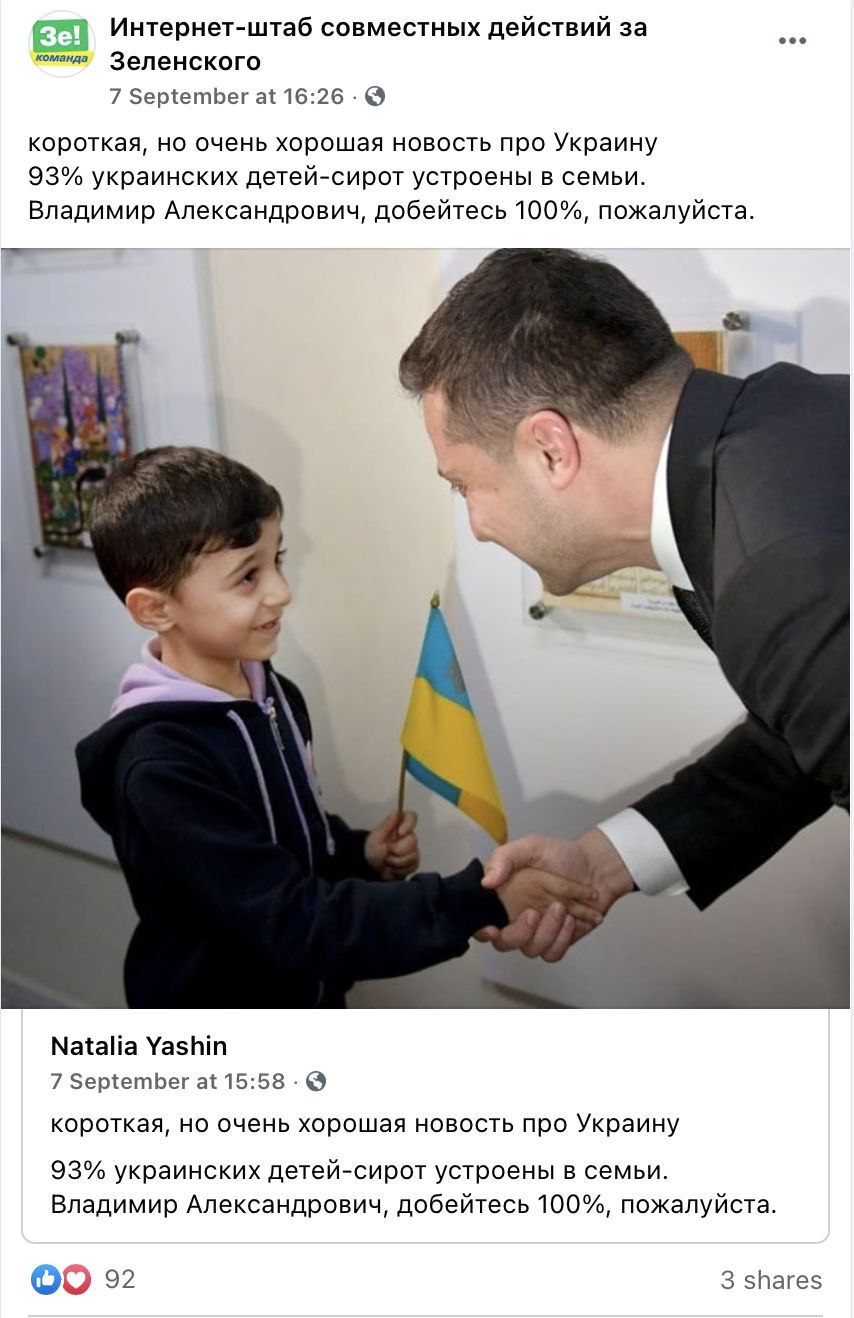
Before she became Zelensky ‘disciple’, Natalya Yashyn supported Georgian exile politician Mikheil Saakashvili, who tried to enter the Ukrainian political scene in 2017. Back then, she was behind many of his support groups on Facebook.
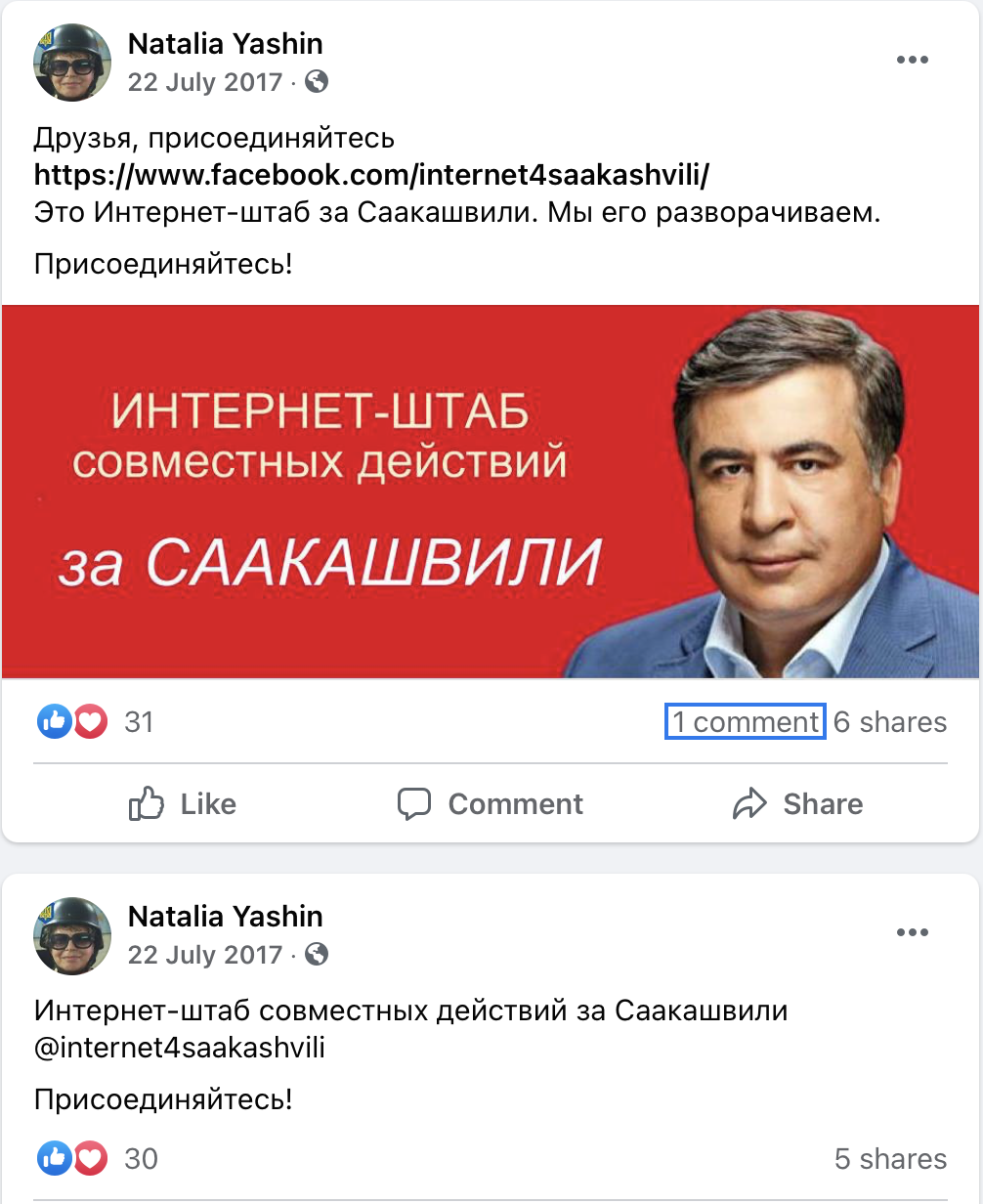
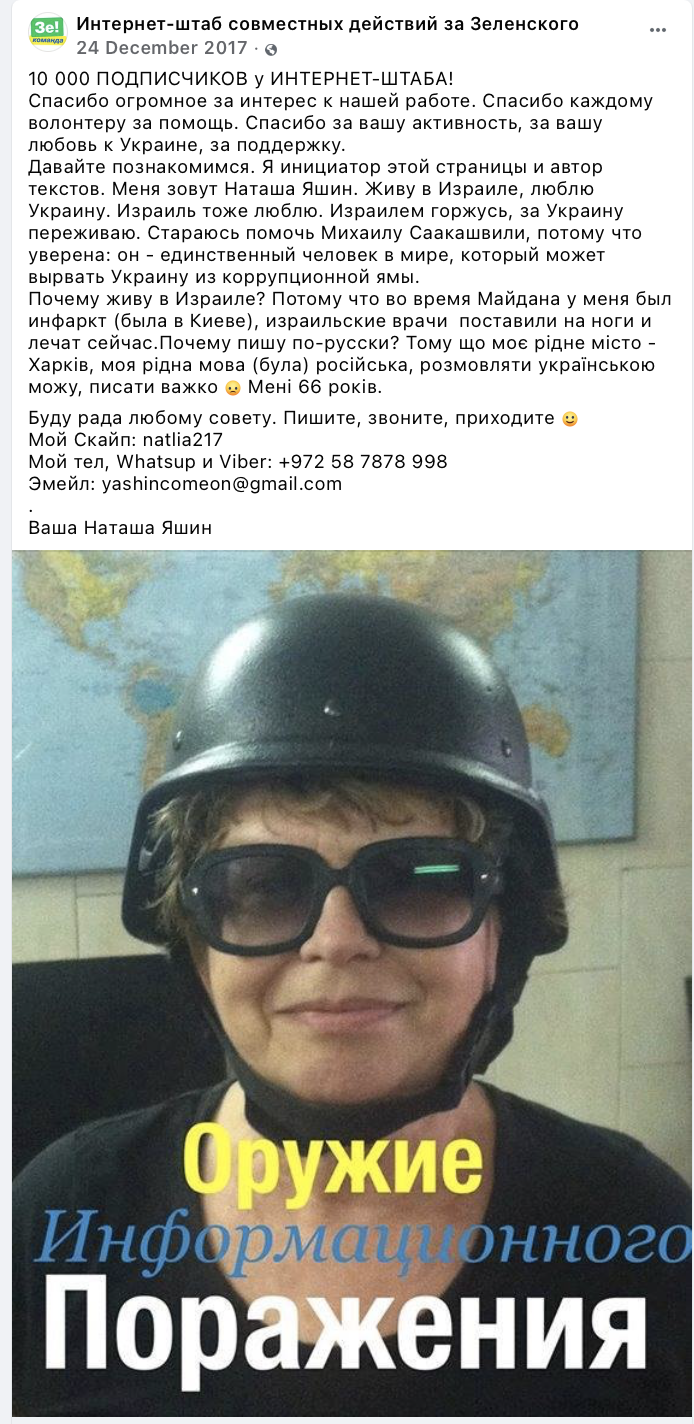
She also ran social media campaigns raising money to buy military personal armor for the Ukrainian soldiers.
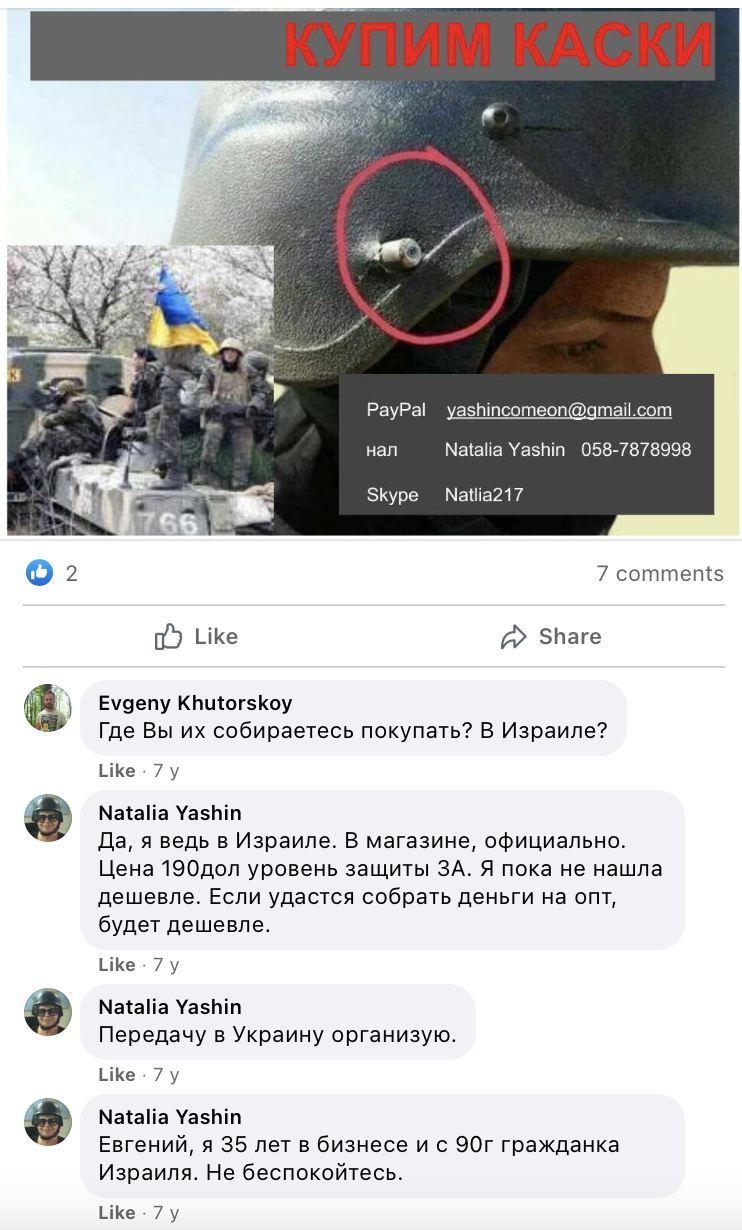
In comments to her posts, some online users called her our over her charitable cause accusing her of fraud schemes. ‘Bukvy” found no evidence that Ukrainian soldiers got any military helmets from Yashyn. 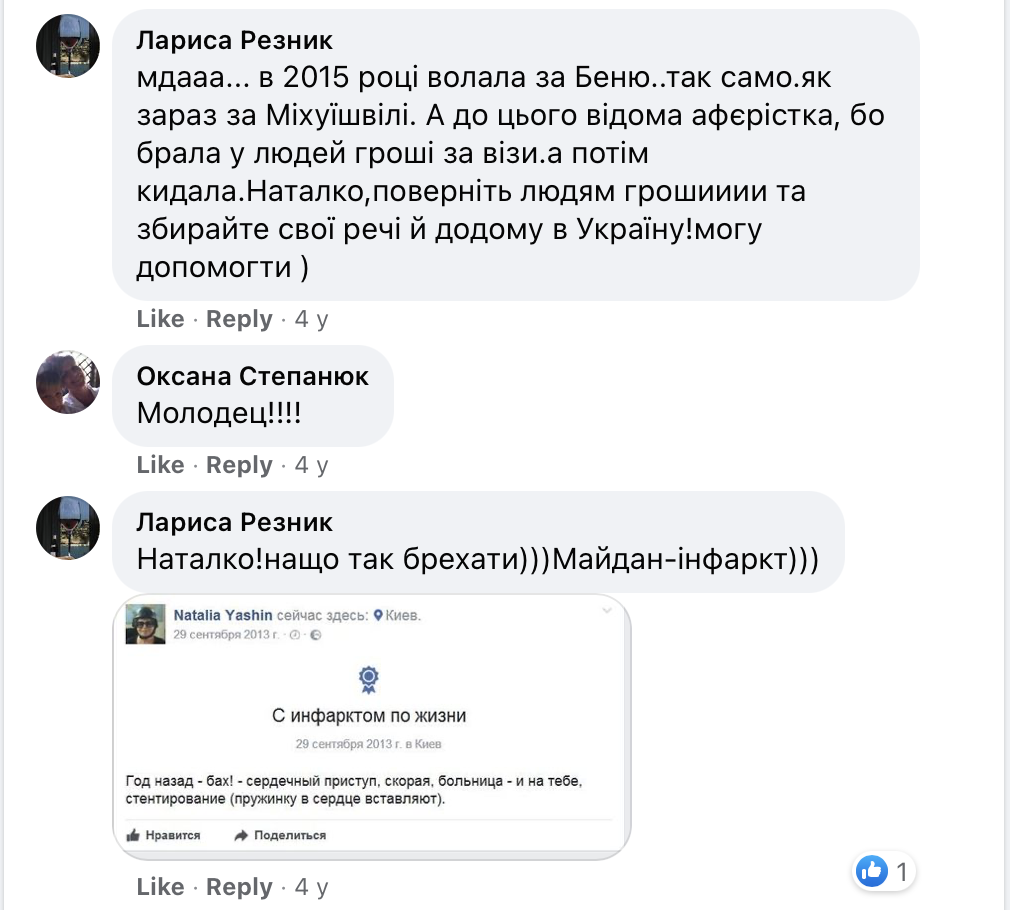
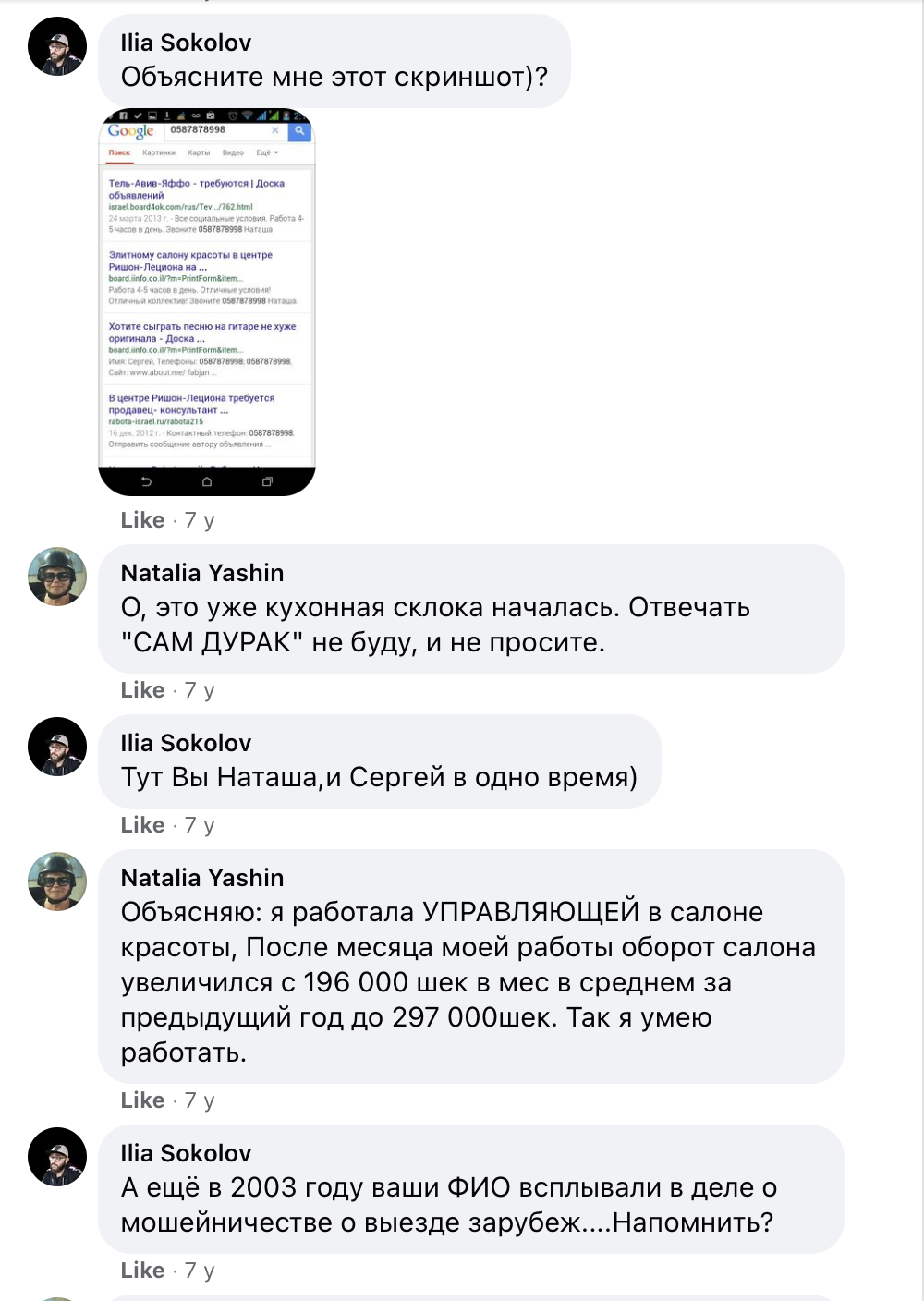
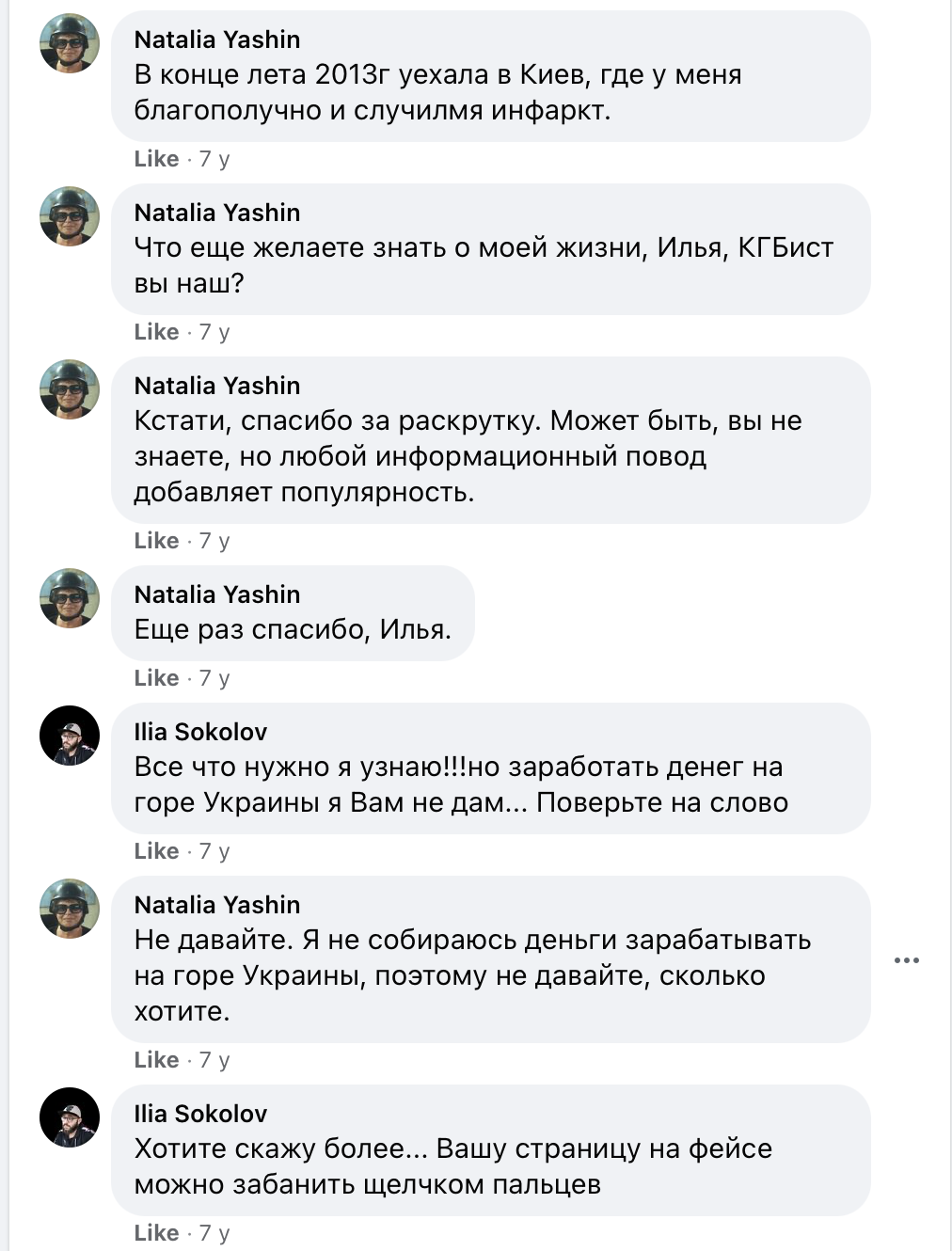
Natalia also tries to grow he presence on Telegram where she earlier launched a channel to support Saakashvili.

The controversial opinion-maker is no stranger to controversy.
Her first Facebook account popped up in 2014, but soon got removed, which led some online commentators to claim the online influencer died in 2015, and soon was picked up by third parties.

Natalia has dismissed the claims and come up with a photo from her work in an Israeli hospital.
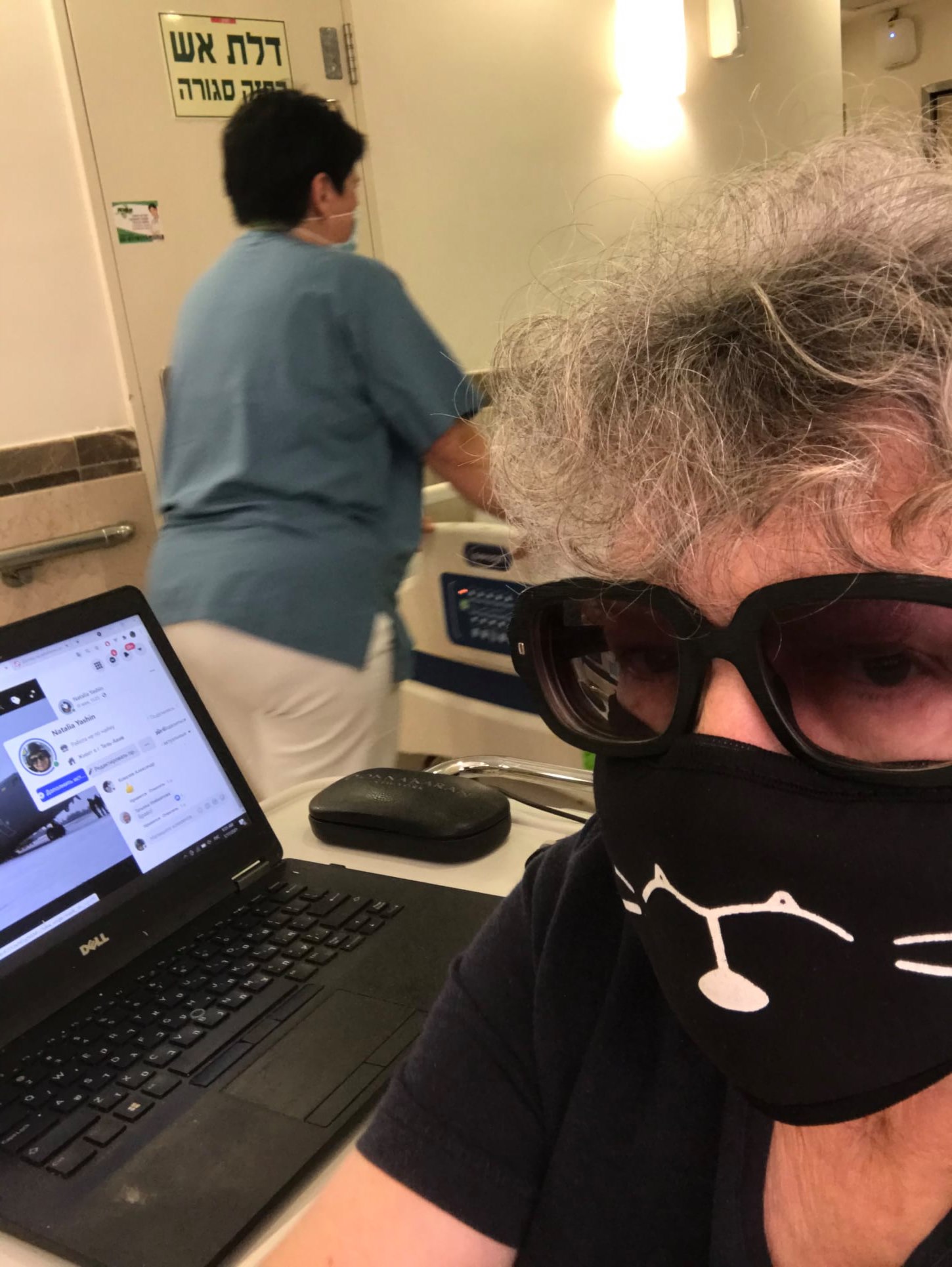
Some of digital ‘president’s men’ who initially went online to support the Ukrainian president in good faith soon started to look for ways to monetize saying yes to any ads coming their way.
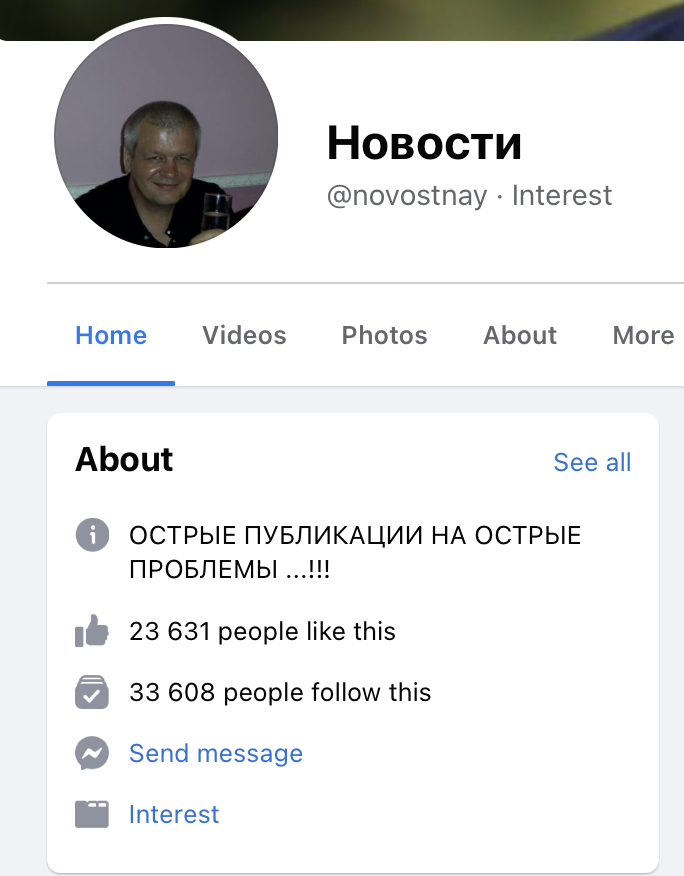
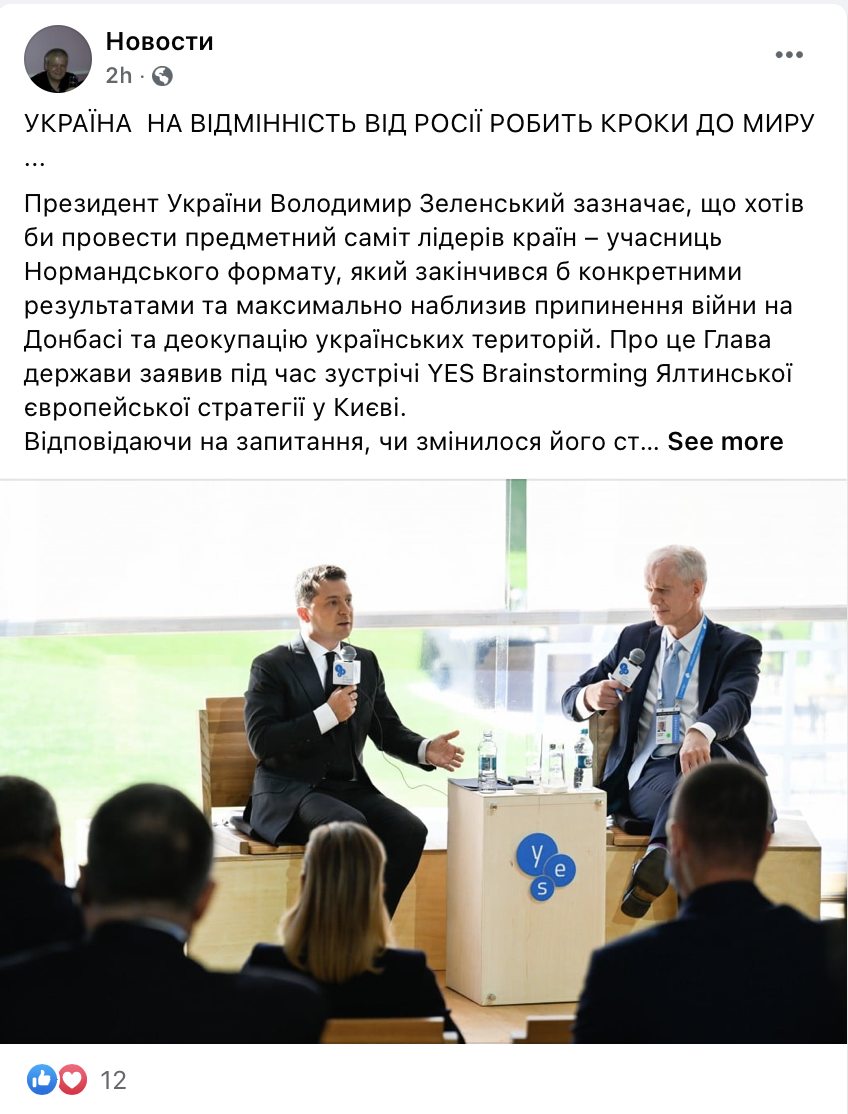
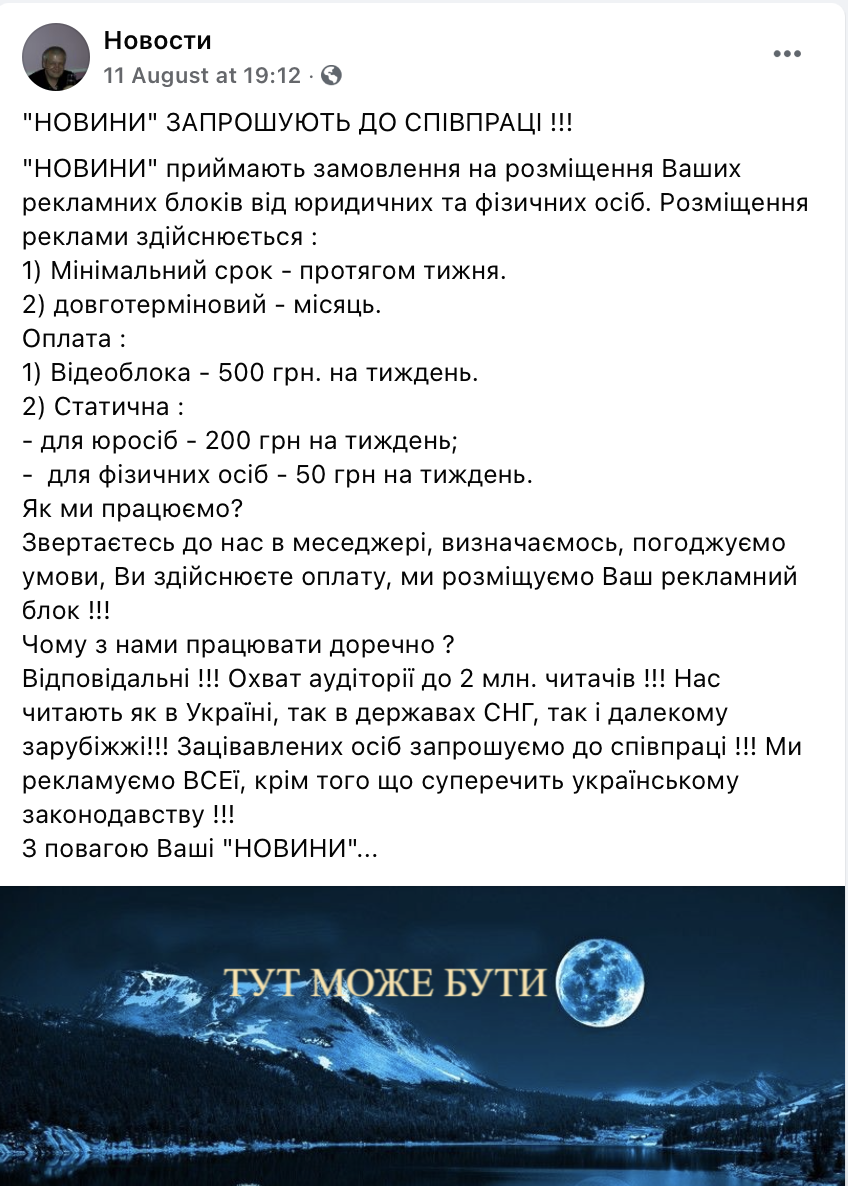
Ze-media outlets
Apart from anonymous Telegram channels and established media outlets with pro-Zelensky sentiment, Ukrainian online landscape sees rising number of small websites launched by actual Zelensky backers who are living off ads and web banners while lauding the president’s policies. 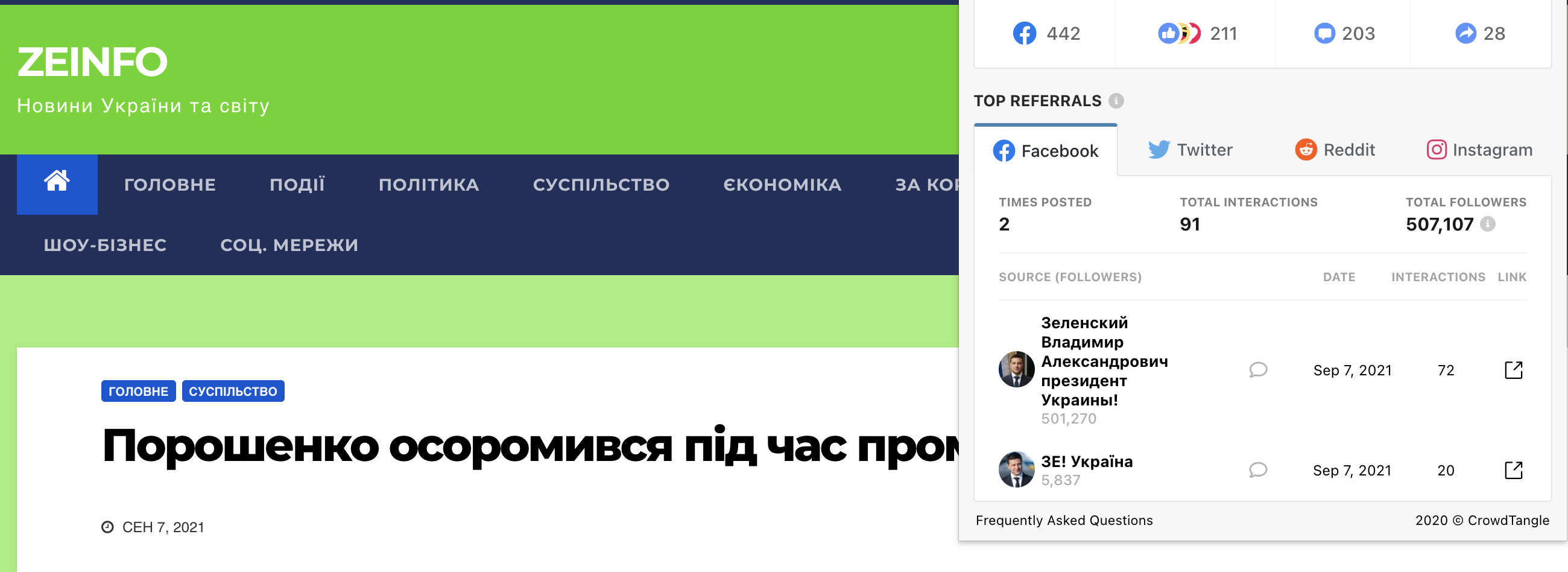
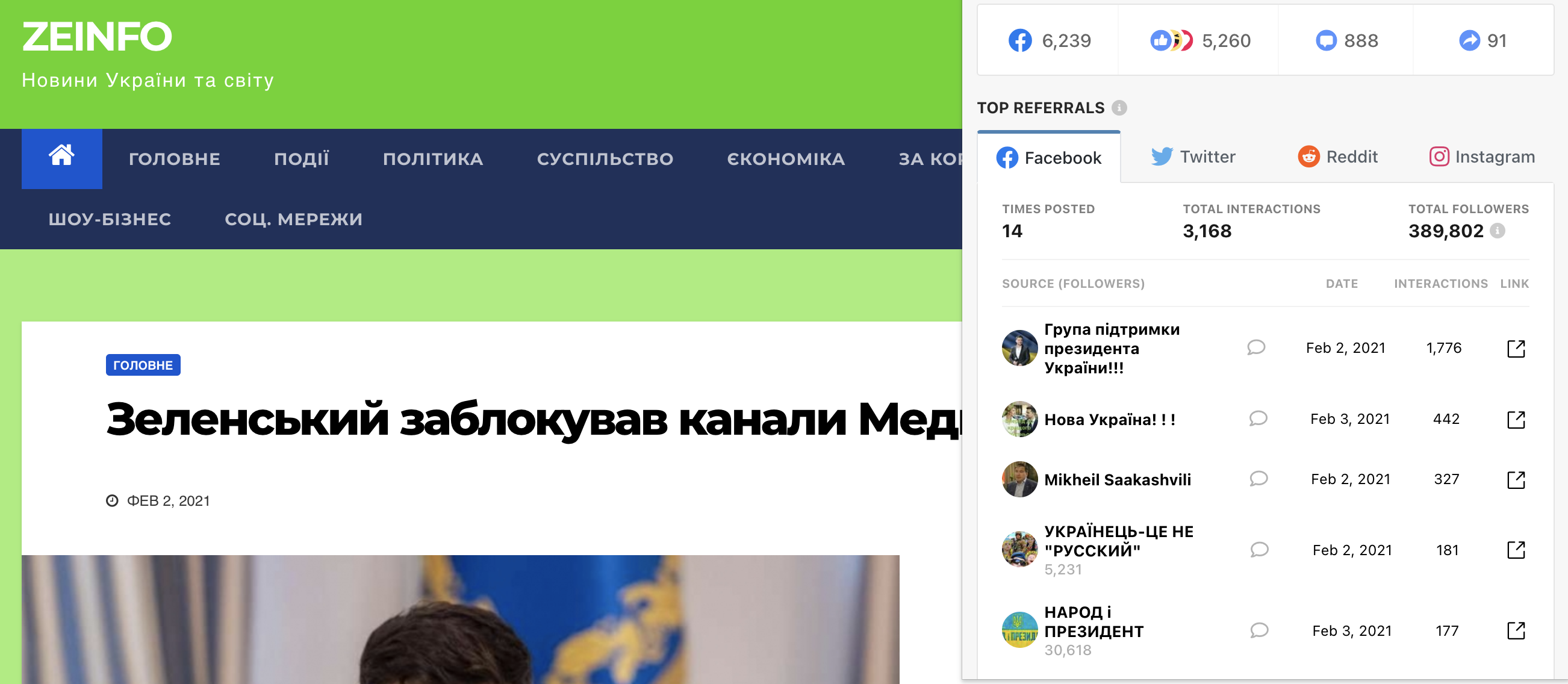
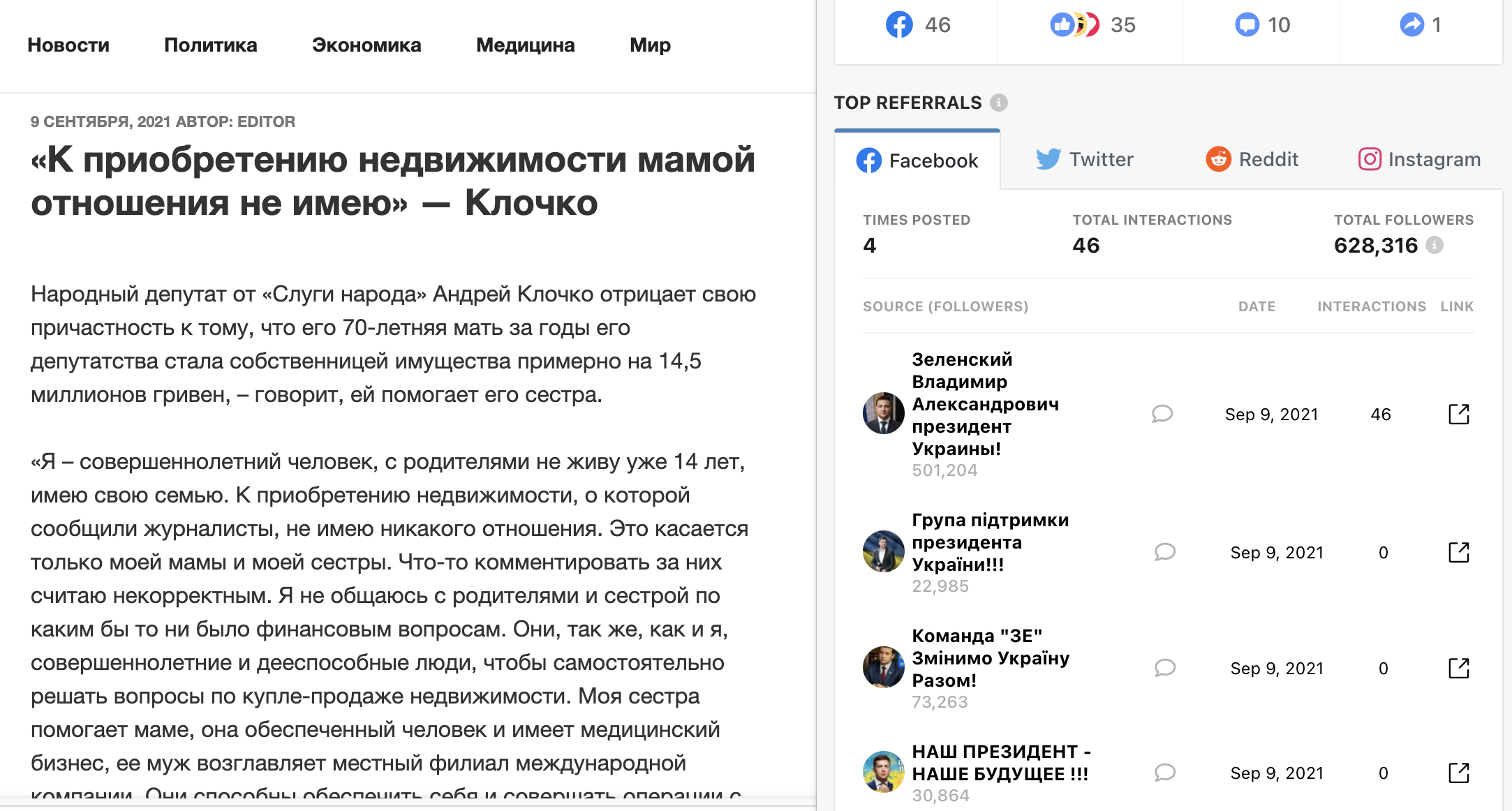
The ‘lower tier ’ of the Ze-team digital supporters
Zelensky’s support groups are known not only for their ‘original’ posts and ‘powerful’ analytics, but also for the most viral content.
‘Zelensky’s men’ have found a winning formula for engagement – you won’t miss putting together the president’s image with scathing remarks about his opponents, it is a guarantee of likes and shares.

Many user accounts of Zelensky fans have a notable presence without any original content. Such allegedly inauthentic pages are used only to boost Zelensky on Facebook.
They are usually filled with complimenatry and positive comments.
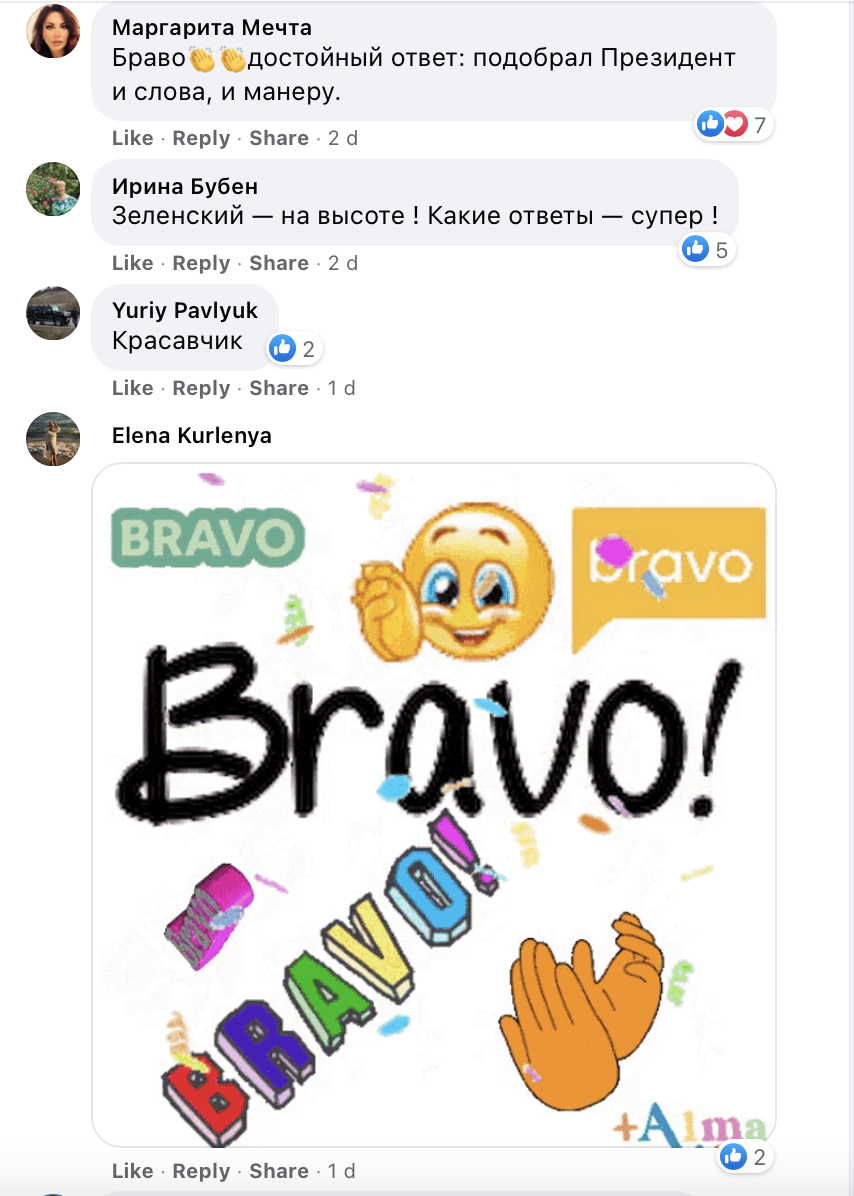
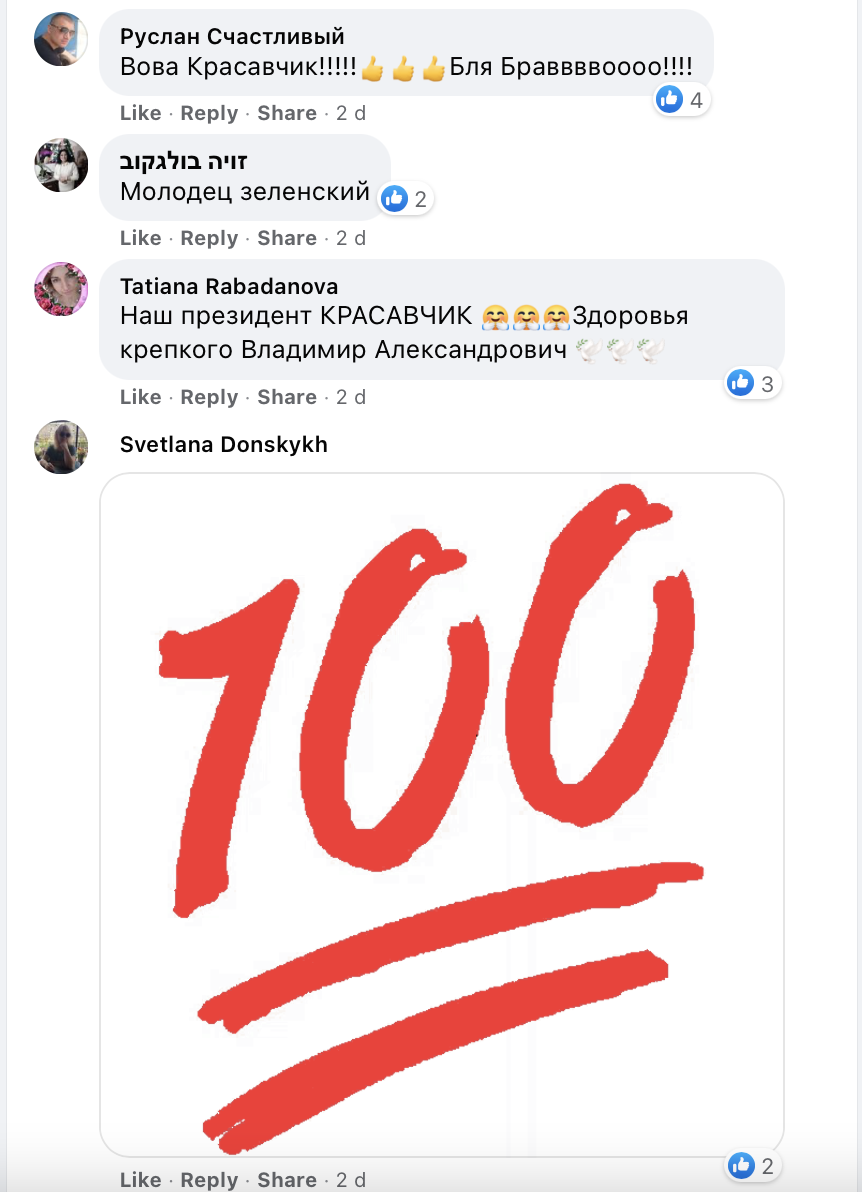
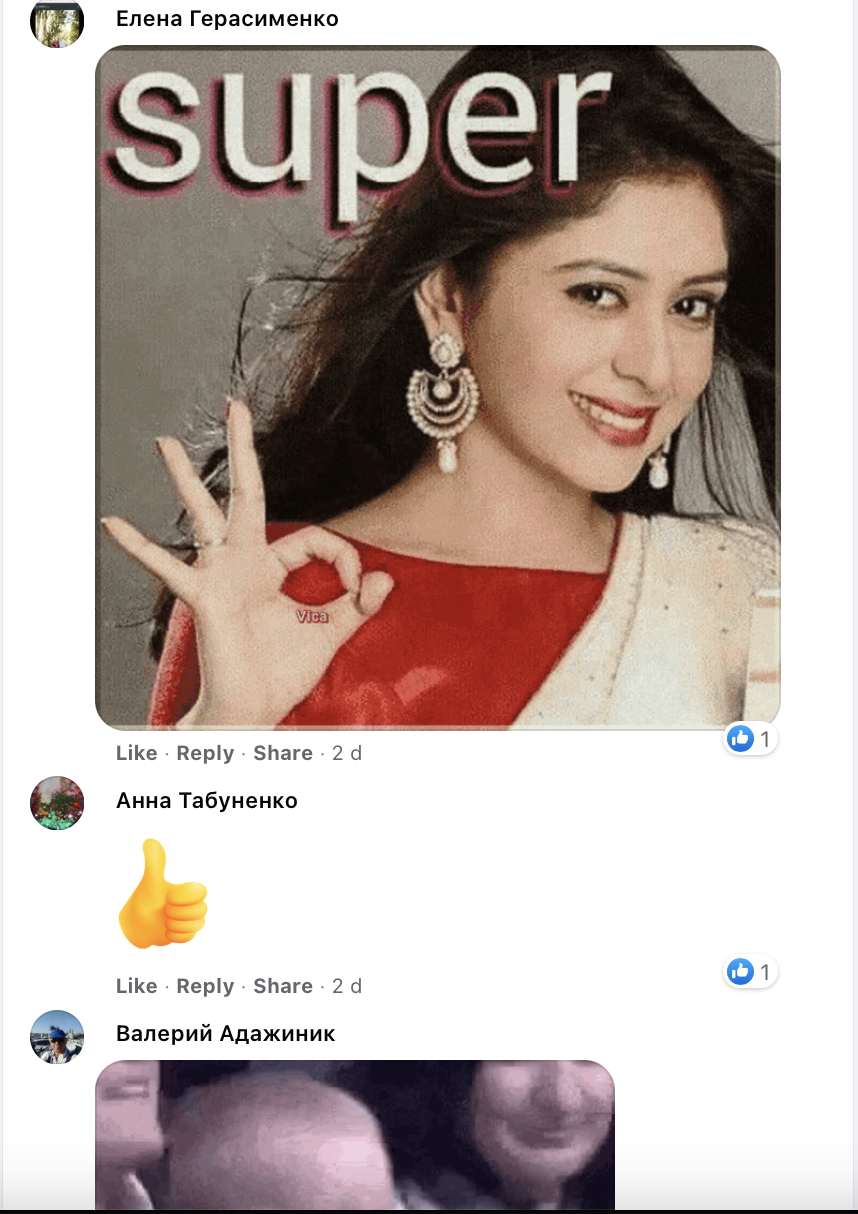
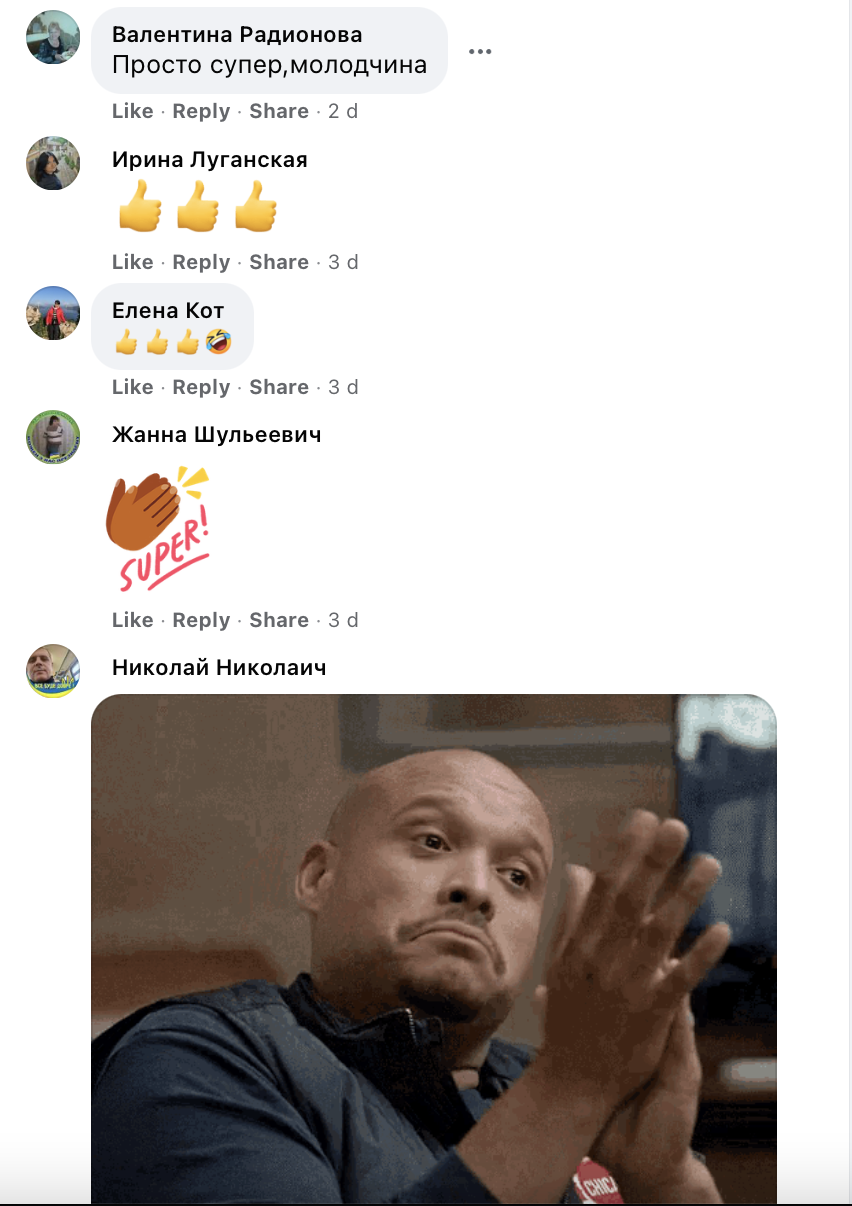
Official pages of Ze-team politicians
In addition to reposts of all news of the President’s office and Zelensky couple, the ‘president’s men’ routinely are posting content coverinng all public events involving Ze-team MPs and state officials.
‘Servant of the People’ MP Mykola Tyshchenko’s used Facebook to hit out at Geo Leros who broke from the party leadeship following their recent scuffle in the Verkhovna Rada. Unsurprisingly, his post easily garnered thousands likes and shares from pro-Zelensky accounts and groups.
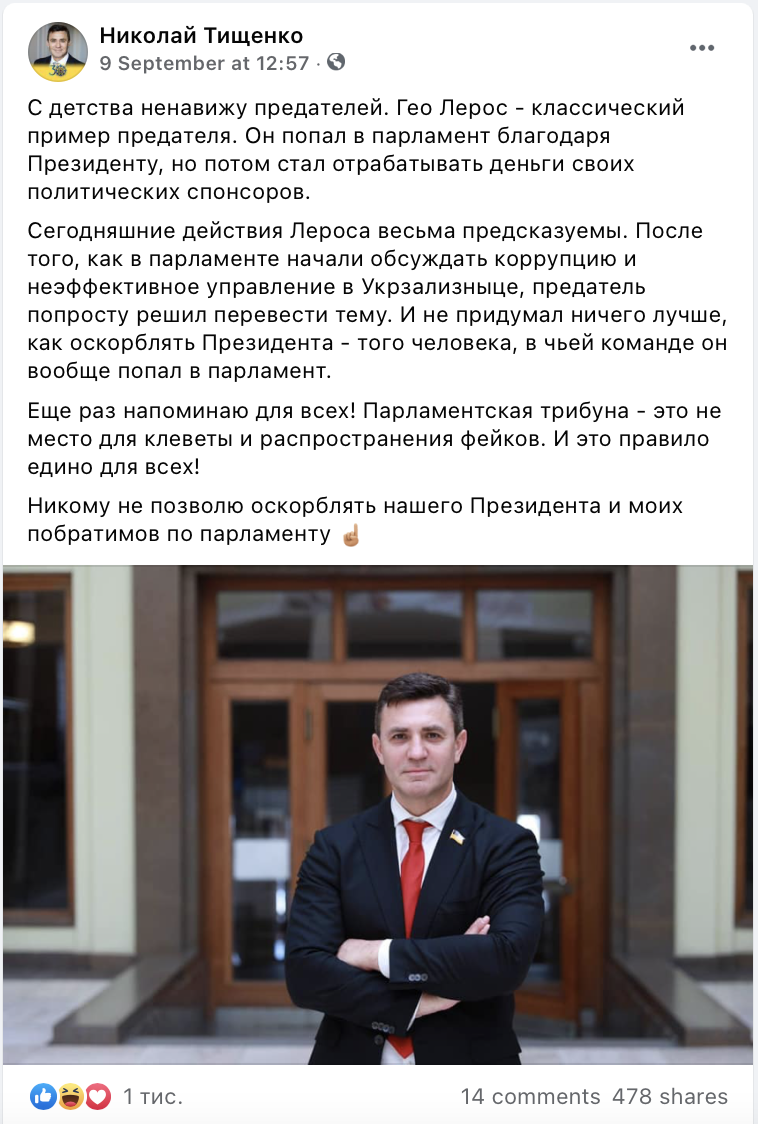
With thousands and thousands of similar accounts and pages boosting similar content, Ze-team agenda argubly gets a ‘megaphone effect’, allowing to impact public perception and recruits the Ukrainian president supporters.

 Radzivon “Gena” Batulin: Belarus is turning into North Korea
Radzivon “Gena” Batulin: Belarus is turning into North Korea 




